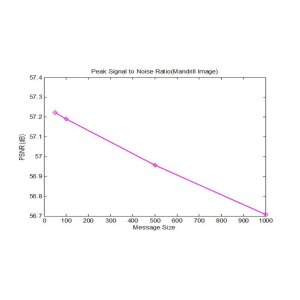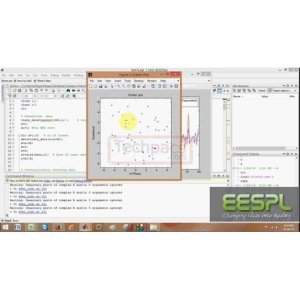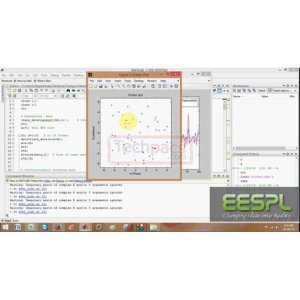A Comprehensive Approach for Enhanced Plant Disease Detection Using Machine Learning and Deep Learning
Problem Definition
Plant seed identification is a critical task in agriculture and plant sciences, as it aids in crop production, biodiversity conservation, and weed control. However, the manual identification of plant seeds is time-consuming and prone to errors. This project aims to address this issue by utilizing machine learning and deep learning techniques to automate the seed identification process. By optimizing feature extraction techniques and leveraging advanced technologies like LXNet, we aim to improve the accuracy and efficiency of identifying different plant seeds. One of the key challenges in this domain is the comparison and contrast of novel deep learning methods with traditional feature extraction methods such as GLCM, Static Asses, mean value, standard deviation, and variance of images.
This project aims to bridge this gap and provide a comprehensive solution to the plant seed identification problem.
Objective
The objective of this project is to address the challenges in plant seed identification by utilizing machine learning and deep learning techniques to automate the process. By optimizing feature extraction methods and leveraging advanced technology like LXNet, the aim is to improve the accuracy and efficiency of identifying different plant seeds. The project also seeks to compare traditional feature extraction methods with novel deep learning approaches to provide insights into their performance and effectiveness. The primary goals include implementing and comparing various feature extraction techniques, applying machine learning algorithms such as KNN and Random Forest, and evaluating their performance through accuracy measurements. The use of MATLAB as the software tool will enable the implementation of algorithms and the analysis of results for a comprehensive evaluation of the proposed approach.
Proposed Work
The project aims to address the research gap in the efficient detection and identification of plant seeds by utilizing a combination of machine learning and deep learning techniques. By focusing on optimizing feature extraction methods and leveraging advanced technology like LXNet, the study seeks to improve accuracy in identifying different plant seeds. The comparison of traditional feature extraction methods with novel deep learning approaches will provide valuable insights into the performance and effectiveness of each technique. The primary objectives include implementing and comparing various feature extraction techniques, applying machine learning algorithms such as KNN and Random Forest, and evaluating the performance of these methods through accuracy measurements.
The proposed approach involves applying existing feature extraction methods like GLCM, Static Asses, and image variance, followed by running the extracted features through machine learning algorithms for evaluation.
Additionally, the introduction of the LXNet deep learning network for feature extraction, coupled with multiclass SVM classification, aims to enhance the efficiency and accuracy of seed identification. By comparing the results of the deep learning approach with traditional machine learning methods, the project will provide a comprehensive analysis of the effectiveness of different techniques in seed identification. The use of MATLAB as the software tool will facilitate the implementation of algorithms and the analysis of results for a thorough evaluation of the proposed approach.
Application Area for Industry
This project can be utilized in various industrial sectors such as agriculture, food processing, and seed production. In the agriculture sector, the accurate identification of plant seeds is crucial for crop management, seed quality control, and research purposes. By implementing the proposed solutions of combining machine learning and deep learning techniques, industries can streamline the seed identification process, leading to increased efficiency and accuracy. Additionally, in the food processing industry, the ability to quickly and accurately identify different plant seeds can enhance product quality and ensure compliance with regulatory standards. The benefits of implementing these solutions include improved productivity, reduced manual labor, and enhanced data analysis capabilities, ultimately leading to cost savings and better decision-making within the various industrial domains.
Application Area for Academics
The proposed project on the detection and identification of plant seeds using machine learning and deep learning techniques has the potential to enrich academic research, education, and training in several ways. Firstly, it opens up opportunities for researchers, MTech students, and PHD scholars to explore innovative research methods in the field of agricultural technology. By combining traditional feature extraction methods with advanced technologies like LXNet, researchers can develop new approaches for identifying plant seeds with higher accuracy and efficiency.
This project can also be used as a training tool for students to learn about the application of machine learning and deep learning in agriculture and plant science. By studying the code and literature of this project, students can gain insights into how different algorithms work together to solve real-world problems in the agricultural sector.
Moreover, the results and findings of this project can be applied in various research domains such as crop science, plant biology, and agricultural engineering. Researchers can leverage the optimized techniques for feature extraction and machine learning algorithms to enhance their studies on seed identification and classification.
In terms of potential applications, the use of MATLAB software and algorithms like GLCM, Static Asses, Random Forest, KNN, and LXNet offer a wide range of possibilities for data analysis and simulation in educational settings. Researchers can use these tools to conduct experiments, analyze data, and draw conclusions in their research projects.
For future scope, researchers can further improve the accuracy of seed identification by exploring more advanced deep learning models and fine-tuning the existing algorithms.
Additionally, the project can be extended to cover other plant-related tasks such as disease detection, yield prediction, and crop monitoring using similar machine learning and deep learning techniques.
Algorithms Used
The algorithms used in this project combined traditional machine learning methods like Random Forest and KNN with advanced deep learning techniques using LXNet and multiclass SVM. Feature extraction techniques such as GLCM, Static Asses, and image variance were employed to extract relevant features from plant seed images. These features were then used for categorization and classification using the machine learning and deep learning algorithms mentioned above. By integrating these algorithms, the project aimed to improve the accuracy and efficiency of plant seed identification compared to existing methods.
Keywords
plant seed detection, feature extraction, deep learning, machine learning, LXNet, GLCM, Static Asses, image variance, KNN, Random Forest, MATLAB, multiclass SVM, image features, performance evaluation, comparison, accuracy, efficiency, pattern recognition, neural networks, computer vision.
SEO Tags
plant seed detection, deep learning techniques, machine learning algorithms, feature extraction methods, LXNet, GLCM, Static Asses, image variance, KNN, Random Forest, multiclass SVM, MATLAB software, performance evaluation, comparison of methods, advanced technology, image features, accuracy improvement.
| Shipping Cost |
|
No reviews found!



















































No comments found for this product. Be the first to comment!